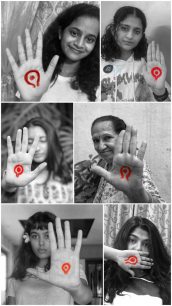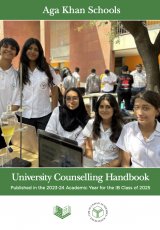Project Bindu
 After a tiring day, she prepares to retire to bed. Just before she goes to sleep, she uses the washroom. Soon after, an inconvenient surprise leaves her dumbfounded. Blood! How come? She is clueless as to what is happening. Her reaction resembles the reality of 71% of girls in India, who have no idea what menstruation is until they experience it. Only her father is around when it happens. She is ruffled: “I really need to talk to maa”. “Please call her,” she adds hastily.
After a tiring day, she prepares to retire to bed. Just before she goes to sleep, she uses the washroom. Soon after, an inconvenient surprise leaves her dumbfounded. Blood! How come? She is clueless as to what is happening. Her reaction resembles the reality of 71% of girls in India, who have no idea what menstruation is until they experience it. Only her father is around when it happens. She is ruffled: “I really need to talk to maa”. “Please call her,” she adds hastily.
Why aren’t men privy to feminine processes? Why do periods make you ‘impure’ and why you should be ashamed if you get them? Menstruation is often labelled as an “aurato wali bimaari” in India, immediately eliciting a gender disparity and isolating women with ‘their own problems’. Additionally, more than 80% off menstruating girls and women do not use sanitary napkins in the country. In order to tackle this alarming lack of awareness, acceptance and access, we founded Bindu – a bold step towards menstrual equity and helping end period poverty in India.
We celebrated the month of May as the first ever International Period Month in collaboration with 30 organizations worldwide, to celebrate those who bleed by featuring artwork, sharing stories of people and spreading awareness about menstrual facts. This included the stories of several students from the Academy as well, where they fearlessly share their unique stories and take a stance against period shaming and ignorance.
As a result of the pandemic, schoolgirls in India have been facing massive shortages of sanitary napkins because their only source of these napkins was from government schemes that supply them through schools, which remain closed amidst the lockdown. Girls who were dependent on such schemes are having to buy sanitary napkins from stores; some who reside in remote villages have to walk 10 to 40 kilometres, and those who cannot afford have started using rags. Police in some cities have taken up the initiative of distributing sanitary napkins in relief camps and slums. However, the problem remains much more acute in rural and semi-urban areas.
To help these schoolgirls, we are partnering with the Saritha Krishna Foundation and Heena’s Tailoring Production house to supply more than 300 schoolgirls with reusable sanitary napkins in Hyderabad. With the help of the Saritha Krishna Foundation, we have identified key slum areas in Bollaram and Begumpet, which are in dire need of these sanitary napkins. One napkin can last a whole day. Thus, we would be making them self-sustainable too. Not only would this initiative help reduce Urinary Tract Infection and other health issues that arise from, unhygienic methods for menstruation, but it would also reduce the environmental impact of these communities.
Minimum wage daily labourers are also unable to afford sanitary napkins due to shortages, hyped-up prices and hoarding. We seek to also supply women in such labour communities with reusable sanitary napkins. Our goal is to provide at least 1000 reusable, safe and hygienic-sanitary napkins during the pandemic. We would give each woman or young girl two such napkins.
Post the return to normalcy after the pandemic, we seek to impart menstrual education to both girls and boys in government schools in Hyderabad, which will include the creation of our educational books about menstruation. Our primary areas of focus will be menstrual education before the onset of periods for girls, and destigmatization amongst boys. Our long-term goal is to make the most vulnerable communities in semi-urban and rural settings sustainable in terms of accessibility to sanitary kits.
Bindu is not just an organization trying to make people understand why #MenstruationMatters. Bindu is also a thought which must be instilled in every individual’s mindset – because Bindu means ‘stop’ or ‘dot’. We aspire to put a stop to damaging stigmas, to period poverty and to ignorance. With a team of passionate students studying at the Academy, we are determined to help make sustainable menstrual hygiene a reality for everyone. Period. Bindu.




